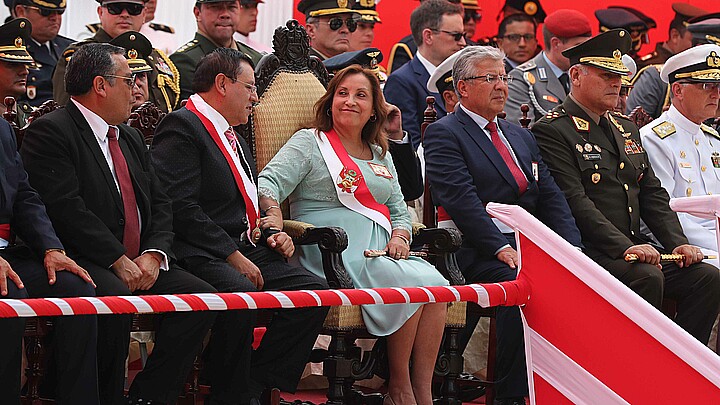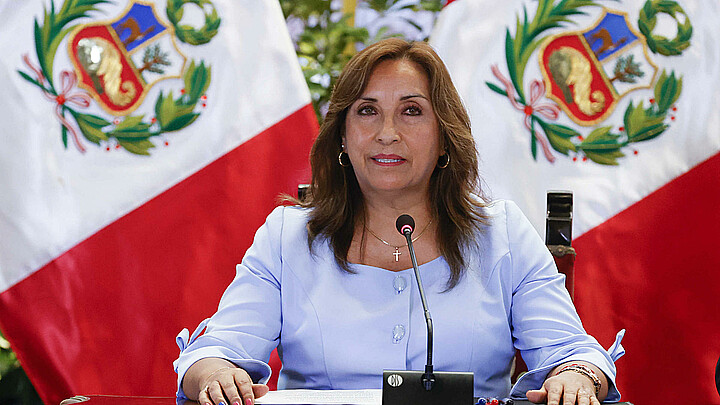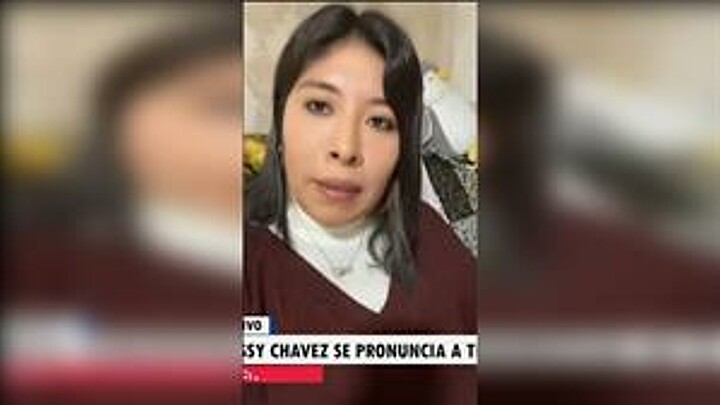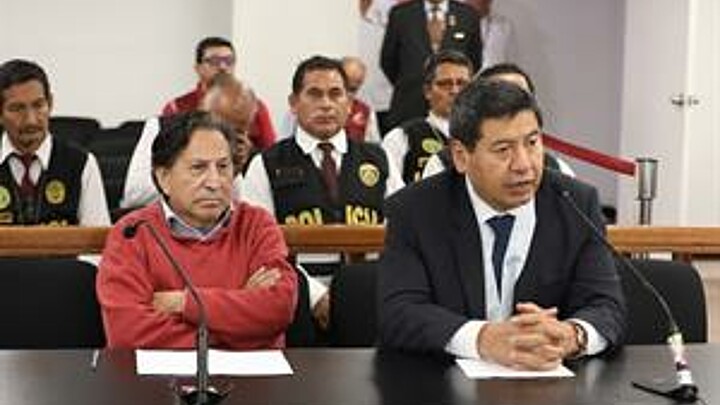Politics
Peru frees former President Alberto Fujimori after 15 years in prison
The former president still has a strong following of support in the South American country despite his controversial past

December 7, 2023 7:06am
Updated: December 7, 2023 7:26am
Former Peruvian president Alberto Fujimori was released from prison on Wednesday after serving 15 years of a 25-year prison sentence.
Despite his controversial past, the former president still has a strong following of support in the South American country. Upon his release, his car was surrounded by hundreds of fans who came to greet him as he exited Lima's Barbadillo prison.
Fujimori was freed after the Peruvian constitutional court reinstated a presidential pardon that was issued six years ago to the former agricultural engineer turned politician.
During his 10-year reign from 1990-2000, Fujimori waged a war against the Maoist terrorist organization, the Shining Path, which brutalized peasants and murdered and coopted innocent civilians throughout the countryside.
Amid his war against the Shining Path however, Fujimori was also accused of having gone too far and unleashing military actions that resulted in human rights abuses and civilian casualties.
The embattled Peruvian president was accused of using an anti-communist military unit known as the Grupo Colina, which committed human rights abuses during an eight-month period from 1991-1992.
The group was ultimately found responsible for the death of dozens of innocent civilians in four incidents known as the Barrios Altos Massacre, the Santa Massacre, the Pativilca Massacre and the La Cantuta Massacre.
Peruvian legislators wanted to investigate the incidents, but the possibility of a probe was dashed after Fujimori took steps to hamper and ultimately dissolved the Democratic Constituent Congress in 1992.
Fujimori signed a controversial law into effect that granted any member of the armed forces or police amnesty if they were accused of human rights violations, and when a court found the law unconstitutional, he signed another law revoking the courts’ power of judicial review over amnesty laws.
Ultimately, both laws were declared unconstitutional by the Inter-American Court of Human Rights.
Fujimori lasted another eight years in office until 2000, during which time he received considerable support from the country’s law enforcement and military apparatus and was known for making successful economic reforms.
In 2000 however, he was accused of corruption and human rights abuses.
Fujimori initially evaded prosecution by fleeing to his ancestral homeland of Japan where he remained in self-imposed exile for five years until he was arrested during a visit to Chile in 2005.
He was extradited back to his native country of Peru in 2007 where he faced criminal prosecution for an illegal search and seizure, and in December was sentenced to six years in prison.
Despite an appeal to the Peruvian Supreme Court, Fujimori’s hopes were dashed when the judicial body upheld the conviction and he remained incarcerated.
A year and a half later, in April 2009, the controlling Peruvian government cracked down harder on the former president, successfully trying and convicting the then 70-year old of human rights abuses stemming from the early 1990s incidents, and Fujimori received a 25-year prison sentence.
Three months later in July he was sentenced to another seven and a half years in prison for embezzlement for transferring $15 million from the national Treasury to his spy chief, Vladimir Montesinos.
He also pleaded guilty to charges of bribery and received an additional six-year term.
Speculation arose about a possible pardon when his daughter, Keiko Fujimori, a successful Peruvian politician, ran for president in 2011, 2016 and 2021, but she was defeated each time.
The former president received a pardon however from his daughter’s rival, President Pedro Pablo Kuczynski, in 2017. Some critics opined that the president’s pardon came as a result of Fujimori’s son, Kenji Fujimori, an elected member of Congress voted against Kuczynski’s impeachment.
Others insisted he was released from prison to hospital because of legitimate health concerns since at the time, the former president was suffering from an abnormal heart rhythm and low blood pressure, representing a "grave risk to his life".
Initially, the pardon was overturned by the Peruvian Supreme Court in 2018 and Fujimori was sent back to prison in January 2019, but reversed course in March 2022. The Inter-American Court issued a conflicting ruling the following month, but the nation’s Constitutional Court ordered Fujimori finally be freed on Tuesday.
Regional news reports indicate that Fujimori left Lima's Barbadillo prison wearing a face mask and was accompanied by his two children, Keiko and Kenji.
“To his supporters, Alberto Fujimori was the president who saved Peru from the twin evils of terrorism and economic collapse. To his opponents, he was an authoritarian strongman who rode roughshod over the country's democratic institutions in order to preserve his hold on power,” wrote the BBC.










